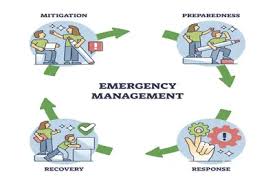Training course on Public Health Emergency Preparedness and Response
Training Course on Public Health Emergency Preparedness and Response is designed for health professionals and emergency responders seeking to strengthen their capabilities in managing public health crises.

Course Overview
Training Course on Public Health Emergency Preparedness and Response
Training Course on Public Health Emergency Preparedness and Response is designed for health professionals and emergency responders seeking to strengthen their capabilities in managing public health crises. This course explores the principles of emergency preparedness, response strategies, and recovery efforts required to effectively mitigate the impacts of health emergencies, such as infectious disease outbreaks, natural disasters, and bioterrorism. Participants will learn to develop comprehensive emergency plans and coordinate multi-sectoral responses to protect community health.
In a world where public health threats are increasingly complex and interconnected, the need for robust emergency preparedness is paramount. This course equips participants with the knowledge and skills necessary to assess risks, plan for emergencies, and implement effective response measures. Through interactive workshops, real-world case studies, and practical exercises, attendees will gain hands-on experience in crisis management and develop the confidence to lead public health responses during emergencies.
Course Objectives
- Understand the principles of public health emergency preparedness.
- Identify key components of emergency response plans.
- Analyze risks and vulnerabilities in public health emergencies.
- Develop effective communication strategies during crises.
- Implement multi-sectoral collaboration for emergency response.
- Evaluate the effectiveness of emergency preparedness plans.
- Prepare for infectious disease outbreaks and other health threats.
- Utilize data and technology in emergency response.
- Engage communities in preparedness initiatives.
- Conduct training and drills for emergency response teams.
- Assess the role of public health policy in emergency management.
- Explore case studies of successful emergency responses.
- Advocate for continuous improvement in emergency preparedness.
Target Audience
- Public health professionals
- Emergency responders
- Healthcare providers
- Epidemiologists
- Community health workers
- Policy makers
- Medical students
- Disaster management specialists
Course Duration: 10 Days
Course Modules
Module 1: Introduction to Public Health Emergency Preparedness
- Overview of public health emergency concepts.
- Historical context of emergency preparedness.
- Importance of preparedness in public health.
- Key terms and definitions.
- Current trends and challenges in emergency management.
Module 2: Risk Assessment and Planning
- Methods for assessing public health risks.
- Identifying vulnerabilities in communities.
- Developing comprehensive emergency plans.
- Strategies for resource allocation and management.
- Engaging stakeholders in planning efforts.
Module 3: Emergency Response Frameworks
- Overview of emergency response systems.
- Roles of various sectors in emergency response.
- Understanding the Incident Command System (ICS).
- Coordination among public health agencies.
- Evaluating response frameworks and protocols.
Module 4: Communication in Emergencies
- Importance of effective communication strategies.
- Developing crisis communication plans.
- Engaging the media and the public.
- Utilizing social media for public health messaging.
- Assessing the impact of communication efforts.
Module 5: Infectious Disease Outbreak Preparedness
- Preparing for infectious disease outbreaks.
- Surveillance and early detection systems.
- Implementing control measures and interventions.
- Case studies of successful outbreak responses.
- Evaluating the effectiveness of outbreak preparedness.
Module 6: Community Engagement and Resilience
- Building community resilience for emergencies.
- Strategies for engaging communities in preparedness.
- Training community health workers for emergency response.
- Assessing community needs and resources.
- Evaluating community preparedness initiatives.
Module 7: Technology and Data in Emergency Management
- Utilizing technology in emergency preparedness.
- Data collection and analysis for decision-making.
- Geographic Information Systems (GIS) in response planning.
- Innovations in public health technology.
- Case studies on technology in emergency response.
Module 8: Continuous Improvement and Policy Advocacy
- Importance of continuous improvement in preparedness.
- Evaluating and updating emergency plans.
- Advocating for policy changes in emergency management.
- Engaging with governmental and non-governmental organizations.
- Sharing best practices and lessons learned.